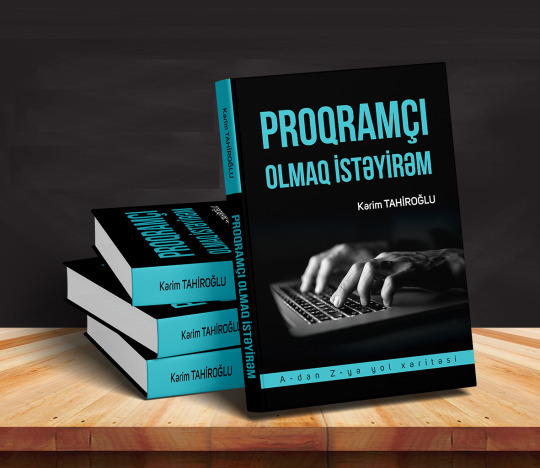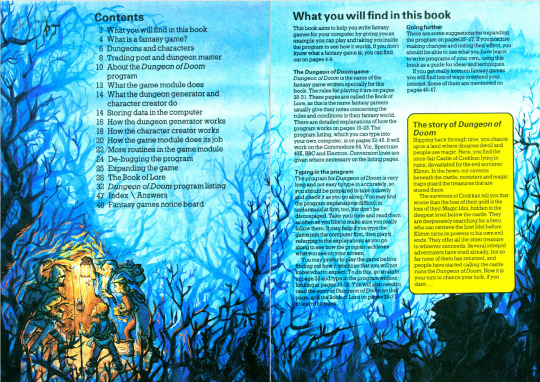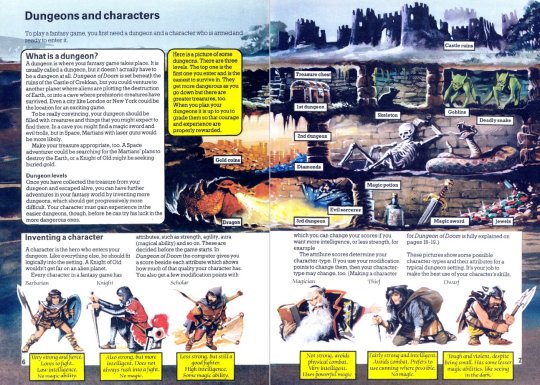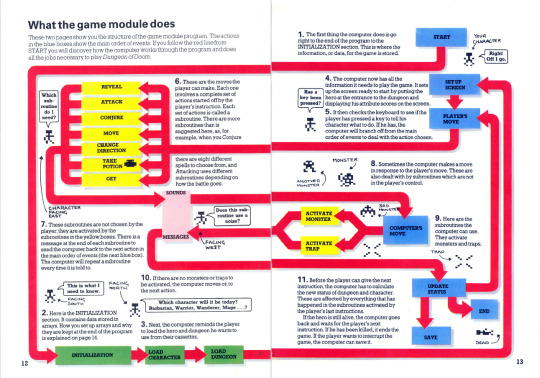#python programming books for beginners
Explore tagged Tumblr posts
Text
Proqramçı olmaq istəyirəm
Proqramçı olmaq istəyənlər üçün yol xəritəsini təqdim edirəm.

“Hər kəs proqramlaşdırmanı öyrənməlidir, çünki o sizə düşünməyi öyrədir”.
Stiv Cobs
Bu gün ən prestijli və ən çox qazandıran ixtisaslardan biri, bəlkə də, bi- rincisi proqramlaşdırmadır. Bu faktdan xəbərdar olan bir çox insanlar həvəsə gəlib proqramçı olmaq istəyirlər. Əlbəttə ki, hər bir işə başlamaq üçün həvəs yaxşı motivatordur, lakin uğur qazanmaq və müvəffəq olmaq üçün kifayət deyil.
Biz məsələyə daha konseptual yanaşacaq və proqramçı olmaq istəyənlərə dəyərli tövsiyələr verəcəyik.
Nə və niyə?
Proqramçı olmaq arzusuna düşənlərin ilk işi bu iki suala cavab tapmaq olmalıdır: nə və niyə? Proqramlaşdırma nədir və mən niyə proqramçı ol- maq istəyirəm? Sözsüz ki, hər bir insan seçəcəyi ixtisasın mahiyyətini dərk etməlidir. Proqramlaşdırma nədir, onun özünəməxsusluğu nədən ibarətdir, hansı çətinlikləri vardır? Bu suallara cavab tapmaq üçün əvvəlcə özünüz araşdırmalı və daha sonra peşəkar proqramçılarla görüşməlisiniz. Yalnız bundan sonra özünüzə “mən niyə proqramçı olmaq istəyirəm” sualını verə bilərsiniz. Bax bu zaman vicdanınız qarşısında tam səmimi olmalısınız. Əgər cavabınız çoxlu pul qazanmaqdırsa, siz ən yaxşısı tacir olmağı seçin. Çünki proqramlaşdırma bir həyat tərzidir, fərqli bir dünyadır. Ona aşiq olmadan bu yolun yolçusu olunmaz. Əgər cavabınız “proqramlaşdırma mənim düşüncə və həyat tərzimə uyğundur, mən özümü onda görürəm” olsa, bax bu başqa məsələ. Deməli, Siz proqramçı olmaq üçün doğulmusunuz…
Doğru yol və sağlam cığır
Bəs proqramçı olmaq üçün nə etmək lazımdır? Uzaq və yaxın məqsəd nədir? Nədən və necə başlamalı? Hansı proqramlaşdırma dilini öyrənməli, hansı kitabları oxumalı, hansı kurslara getməli? Növbəti mərhələdə bu suallara cavab tapmalısınız.
Proqramçı olmağa qərar verəndən sonra sizə bir neçə yol görünəcək. Siz doğru yolu seçməlisiniz. Məqsədə çatmaq üçün bir çox yollar var, amma bu şəxsdən şəxsə dəyişir. Hansı yolun Sizin üçün doğru olduğuna yalnız özünüz qərar verə bilərsiniz. Bunun üçün hansı sahə üzrə proq- ramlaşdırma ilə məşğul olacağınızı müəyyənləşdirin. Sahələr müxtəlifdir: tətbiqi, sistem, mobil, veb, oyun və s. Seçəcəyiniz sahə sizin yolunuzu müəyyənləşdirəcək, bu da öz növbəsində uzaq məqsədinizin nə olduğunu aydınlaşdıracaq.
Doğru yolu təsbit etdikdən sonra sizi o yola götürən sağlam bir cığırı tapmaq lazımdır. Başqa sözlə desək, yaxın məqsədləri müəyyən et- məlisiniz. Yaxın məqsədlər isə alqoritm anlayışı və proqramlaşdırmanın əsaslarına sahib olmaqdır. Bunun üçün ən asan proqramlaşdırma dilindən başlamaq məsləhətdir. Bu, Python ola bilər.
Kitab seçimi
Kitab seçimi çox önəmlidir. Elə bir kitab seçməlisiniz ki, Sizi yarıyolda qoymasın. Mütləq özü öyrənənlər və yeni başlayanlar üçün nəzərdə tutulan kitablardan istifadə etməlisiniz. İlk proqramlaşdırma kitabınızın dili çox sadə, həmçinin əyləncəli olmalıdır.
Özüm öyrənim, yoxsa kursa gedim?
Asan olmasa da, özünüzün öyrənməyiniz mümkündür. Bunun üçün iradə, nizam-intizam və səbir lazımdır. Əlbəttə, kursa getməklə təkbaşına öyrəndiklərinizi daha qısa zamanda öyrənə bilərsiniz. Kursa getməyə imkanınız yoxdursa, yenə də üzülməyin. Çox yaxşı onlayn kurslar da mövcuddur, həm də pulsuz.
Təcrübə, təcrübə, təcrübə
Proqramlaşdırmanı yaxşı öyrənmək üçün bu işin nəzəriyyəsini, fun- damental əsaslarını və konsepsiyasını çox yaxşı bilməlisiniz. Proqramlaş- dırmanı yaxşı bacarmaq üçün isə bol-bol praktika lazımdır. Necə ki, yaxşı piano çalmaq üçün çox piano çalmaq lazımdır. Eləcə də yaxşı proqram yazmaq üçün çoxlu proqram yazmaq lazımdır. Uzun sözün qısası, daima alqoritm tərtib etmək bacarığınızı təkmilləşdirməli və proqramlaşdırma məntiqinizi inkişaf etdirməlisiniz. Bunun üçün müxtəlif çətinlik dərəcəli məsələləri həll edin, fərqli və optimal həll yollarını axtarın, eksperimentlər aparmaqdan çəkinməyin. Əlavə olaraq müxtəlif proqramlaşdırma yarışla- rında iştirak edin. Bütün bunlar həm təcrübənizi, həm də özünüzə inamınızı artıracaq.
Əlavə resurslar
Bir tərəfdən proqramlaşdırın, digər tərəfdən də öyrənməyə davam edin. Forumlara üzv olun, bloqları izləyin, videodərslərə baxın. Bir sözlə, daim araşdırın və əlavə resurslardan hər zaman istifadə edin. Bu şəkildə biliklərinizi daha da zənginləşdirmiş olacaqsınız.
Bir mürşidiniz olsun
Tanıdığınız (real və ya virtual) ən azı bir peşəkar proqramçı olsun. Rahat sual verə bildiyiniz, məsləhət aldığınız, sizə yol göstərən bir proqramçı. Amma siz onu primitiv suallarınızla bezdirməyin. Əvvəlcə özünüz araşdırın, sualınıza cavab tapa bilməsəniz, bir də araşdırın. Araşdırmanız nəticəsiz qalsa, bir daha sınayın. Yalnız 3-cü uğursuz cəhddən sonra mür-şidinizdən soruşun.
Bildiklərinizi paylaşın
Bilik paylaşdıqca artır. Bu qızıl qaydanı unutmayın. Siz də bildiklərinizi bu yolun yolçuları ilə bölüşün. İnanın, bunun sizə də faydası olacaq. Bilik- ləriniz həm yenilənəcək, həm də canlı qalacaq.
Günün nəbzini tutun
Proqramlaşdırma ilə bağlı hər şeyi izləyin, dəyişiklik və yeniliklərdən xəbərdar olun. Unutmayın ki, proqramlaşdırma dilləri də gün keçdikcə inkişaf edir, daha da zənginləşir.
Layihələr
Nəzəri biliklər və müəyyən dərəcədə praktiki vərdişlər əldə etdikdən sonra layihələrə başlaya bilərsiniz. İlkin olaraq kiçik layihələrdən başlamağınız məsləhətdir. Unutmayın, məsələ layihənin kiçikliyində və ya böyüklüyündə deyil. Əsas odur ki, başladığınız işi yarımçıq qoymayasınız. Hətta ən kiçik layihəni belə inkişaf etdirərək kifayət qədər ciddi proqram məhsulu halına gətirmək mümkündür. Burada əsas məsələ prosesin özüdür. Layihə boyunca qarşılaşdığınız problemləri anlamaq, onların həll yollarını tapmaq, bu həllərdən optimal olanını seçmək, addım-addım layihənin qarşınızda şəkillənməsi, onun təkmilləşdirilməsi… Bütün bunlar sizə tərifolun- maz həyəcan verəcək, zövq yaşadacaq.
Startaplar
Artıq bir neçə müstəqil layihəniz olduqdan sonra startap komandalarına da qoşula bilərsiniz. Bu sizə həm təcrübə qazandıracaq, həm komanda ruhu aşılayacaq, həm də əgər bəxtiniz gətirsə, pul qazandıracaq.
Təcrübə proqramları
Müəyyən səviyyəyə gəldikdən sonra hökmən şirkətlərin elan etdiyi pullu və ya pulsuz təcrübə proqramlarına qoşulun. Gələcək karyeranız adına bu çox uğurlu bir başlanğıc ola bilər. Bu zaman həm real təcrübə qazanar, həm də CV-nizə fəxrlə bir referans əlavə etmiş olarsınız. Hətta bəxtiniz gətirsə, təcrübə keçdiyiniz şirkət sizə real iş təklifi də edə bilər.
Sertifikatlar
Əsas bilik və bacarıqlardır, sertifikat o qədər də vacib deyil. Bu fikir, əsasən, doğrudur. Amma bilik və bacarıqlara yiyələndikdən sonra sertifikatlar əldə etmək sizin peşəkarlığınızın real göstəricisi ola bilər. Şirkətlərə iş müraciətlərində, eləcə də müqavilə şərtlərində bu sertifikatların təsiri çox böyükdür. Digər tərəfdən sertifikat imtahanlarına hazırlaşarkən bilik- lərinizi sistemləşdirmiş olacaqsınız.
İşə düzəlmə
Proqramlaşdırma peşəkar fəaliyyətdir. Proqramçı olmaq arzusu ilə çıxdığınız bu yolun bir mənzili, məntiqi nəticəsi olmalıdır. Bu da, təbii ki, işə düzəlməkdir. Uğurlu karyera qurmaq üçün bura qədər verdiyimiz məsləhətlərə hərfiyyən əməl etməlisiniz. Yalnız bu zaman iş müsahibələrində özünəinamınız güclü olacaq. İmkanlarınızı layiqincə qiymətləndirin və iş təkliflərinə praqmatik yanaşın. Sizə uğurlar!
“Proqramçı olmaq istəyirəm” kitabı səh. 14–18 (Kərim Tahiroğlu)
#programming#coding#beginner#programming languages#software development#python#azerbaycan#programming book
1 note
·
View note
Text
It is crucial to learn Python from the best resources available. books are one of the best resources to learn anything so we are going to check out the 5 best Python books for beginners. the episode of this podcast is dedicated to the top 5 Python books to build a strong foundation for beginners.
#best python book for beginners#python programming book#best book for python programming#python programming book for beginners#book for python programming#best book for python programming pdf#latest Python books#free Python books#Python Crash Course#Head First Python#Learn Python the Hard Way#Python Programming An Introduction to Computer Science#Automate the Boring Stuff with Python#best python book for beginners in India#SoundCloud
0 notes
Note
hi!! do you have any free resources or textbooks for learning python? i’m doing my dissertation and i need a refresher before i start doing it properly. thanks!!
Hiya! 💗
Here you go:
Book
Python Objects and Classes
Roadmap.sh
Random Python Resources
Top 20 Python Projects for Beginners to Master the Language
Free Programming Books
Python Notes and Resources by @trialn1error
Python Official Roadmap
Python Project List
Python 3 Cheat Sheet
Python Cheatsheet for Beginners
These are the ones' I've shared on my blog over the years! Hope their helpful! 🥰👍🏾💗
#my asks#resources#python resources#codeblr#coding#progblr#programming#studying#studyblr#learn to code#comp sci#tech#programmer
338 notes
·
View notes
Text
Why Not Write Cryptography
I learned Python in high school in 2003. This was unusual at the time. We were part of a pilot project, testing new teaching materials. The official syllabus still expected us to use PASCAL. In order to satisfy the requirements, we had to learn PASCAL too, after Python. I don't know if PASCAL is still standard.
Some of the early Python programming lessons focused on cryptography. We didn't really learn anything about cryptography itself then, it was all just toy problems to demonstrate basic programming concepts like loops and recursion. Beginners can easily implement some old, outdated ciphers like Caesar, Vigenère, arbitrary 26-letter substitutions, transpositions, and so on.
The Vigenère cipher will be important. It goes like this: First, in order to work with letters, we assign numbers from 0 to 25 to the 26 letters of the alphabet, so A is 0, B is 1, C is 2 and so on. In the programs we wrote, we had to strip out all punctuation and spaces, write everything in uppercase and use the standard transliteration rules for Ä, Ö, Ü, and ß. That's just the encoding part. Now comes the encryption part. For every letter in the plain text, we add the next letter from the key, modulo 26, round robin style. The key is repeated after we get tot he end. Encrypting "HELLOWORLD" with the key "ABC" yields ["H"+"A", "E"+"B", "L"+"C", "L"+"A", "O"+"B", "W"+"C", "O"+"A", "R"+"B", "L"+"C", "D"+"A"], or "HFNLPYOLND". If this short example didn't click for you, you can look it up on Wikipedia and blame me for explaining it badly.
Then our teacher left in the middle of the school year, and a different one took over. He was unfamiliar with encryption algorithms. He took us through some of the exercises about breaking the Caesar cipher with statistics. Then he proclaimed, based on some back-of-the-envelope calculations, that a Vigenère cipher with a long enough key, with the length unknown to the attacker, is "basically uncrackable". You can't brute-force a 20-letter key, and there are no significant statistical patterns.
I told him this wasn't true. If you re-use a Vigenère key, it's like re-using a one time pad key. At the time I just had read the first chapters of Bruce Schneier's "Applied Cryptography", and some pop history books about cold war spy stuff. I knew about the problem with re-using a one-time pad. A one time pad is the same as if your Vigenère key is as long as the message, so there is no way to make any inferences from one letter of the encrypted message to another letter of the plain text. This is mathematically proven to be completely uncrackable, as long as you use the key only one time, hence the name. Re-use of one-time pads actually happened during the cold war. Spy agencies communicated through number stations and one-time pads, but at some point, the Soviets either killed some of their cryptographers in a purge, or they messed up their book-keeping, and they re-used some of their keys. The Americans could decrypt the messages.
Here is how: If you have message $A$ and message $B$, and you re-use the key $K$, then an attacker can take the encrypted messages $A+K$ and $B+K$, and subtract them. That creates $(A+K) - (B+K) = A - B + K - K = A - B$. If you re-use a one-time pad, the attacker can just filter the key out and calculate the difference between two plaintexts.
My teacher didn't know that. He had done a quick back-of-the-envelope calculation about the time it would take to brute-force a 20 letter key, and the likelihood of accidentally arriving at something that would resemble the distribution of letters in the German language. In his mind, a 20 letter key or longer was impossible to crack. At the time, I wouldn't have known how to calculate that probability.
When I challenged his assertion that it would be "uncrackable", he created two messages that were written in German, and pasted them into the program we had been using in class, with a randomly generated key of undisclosed length. He gave me the encrypted output.
Instead of brute-forcing keys, I decided to apply what I knew about re-using one time pads. I wrote a program that takes some of the most common German words, and added them to sections of $(A-B)$. If a word was equal to a section of $B$, then this would generate a section of $A$. Then I used a large spellchecking dictionary to see if the section of $A$ generated by guessing a section of $B$ contained any valid German words. If yes, it would print the guessed word in $B$, the section of $A$, and the corresponding section of the key. There was only a little bit of key material that was common to multiple results, but that was enough to establish how long they key was. From there, I modified my program so that I could interactively try to guess words and it would decrypt the rest of the text based on my guess. The messages were two articles from the local newspaper.
When I showed the decrypted messages to my teacher the next week, got annoyed, and accused me of cheating. Had I installed a keylogger on his machine? Had I rigged his encryption program to leak key material? Had I exploited the old Python random number generator that isn't really random enough for cryptography (but good enough for games and simulations)?
Then I explained my approach. My teacher insisted that this solution didn't count, because it relied on guessing words. It would never have worked on random numeric data. I was just lucky that the messages were written in a language I speak. I could have cheated by using a search engine to find the newspaper articles on the web.
Now the lesson you should take away from this is not that I am smart and teachers are sore losers.
Lesson one: Everybody can build an encryption scheme or security system that he himself can't defeat. That doesn't mean others can't defeat it. You can also create an secret alphabet to protect your teenage diary from your kid sister. It's not practical to use that as an encryption scheme for banking. Something that works for your diary will in all likelihood be inappropriate for online banking, never mind state secrets. You never know if a teenage diary won't be stolen by a determined thief who thinks it holds the secret to a Bitcoin wallet passphrase, or if someone is re-using his banking password in your online game.
Lesson two: When you build a security system, you often accidentally design around an "intended attack". If you build a lock to be especially pick-proof, a burglar can still kick in the door, or break a window. Or maybe a new variation of the old "slide a piece of paper under the door and push the key through" trick works. Non-security experts are especially susceptible to this. Experts in one domain are often blind to attacks/exploits that make use of a different domain. It's like the physicist who saw a magic show and thought it must be powerful magnets at work, when it was actually invisible ropes.
Lesson three: Sometimes a real world problem is a great toy problem, but the easy and didactic toy solution is a really bad real world solution. Encryption was a fun way to teach programming, not a good way to teach encryption. There are many problems like that, like 3D rendering, Chess AI, and neural networks, where the real-world solution is not just more sophisticated than the toy solution, but a completely different architecture with completely different data structures. My own interactive codebreaking program did not work like modern approaches works either.
Lesson four: Don't roll your own cryptography. Don't even implement a known encryption algorithm. Use a cryptography library. Chances are you are not Bruce Schneier or Dan J Bernstein. It's harder than you thought. Unless you are doing a toy programming project to teach programming, it's not a good idea. If you don't take this advice to heart, a teenager with something to prove, somebody much less knowledgeable but with more time on his hands, might cause you trouble.
350 notes
·
View notes
Text
robotics
oh, robotics is such an exciting and futuristic hobby! it's a fantastic way to learn about technology, engineering, and problem-solving. plus, you get to build really cool robots!
step-by-step guide to start robotics as a hobby
step 1: gather your supplies
basic materials: you'll need tools like a soldering iron, wire cutters, screwdrivers, and components like motors, sensors, and microcontrollers (such as Arduino or Raspberry Pi).
article resource: beginner's guide to robotics
link to a robotics materials site: sparkfun
step 2: learn the basics of electronics
understand circuits: learn about basic electronic components like resistors, capacitors, and transistors, and how they work together in a circuit.
book resource: Make: Electronics by Charles Platt
step 3: start with simple projects
build a basic robot: start with a simple robot, like a line-following robot or a basic wheeled robot.
product link resource: basic robot kit
step 4: learn to program
coding basics: learn to program your microcontroller using languages like python or arduino ide.
online course: arduino programming for beginners
step 5: expand your skills
add sensors and actuators: integrate sensors and actuators into your robots to make them more interactive and responsive.
article resource: how to use sensors with arduino
step 6: join a robotics community
connect with others: join a local robotics club or an online community to share your projects, get advice, and learn from others.
community resource: robotics stack exchange
step 7: keep learning and experimenting
never stop exploring: robotics is a constantly evolving field, so keep experimenting with new projects and learning new skills.
blog resource: advanced robotics projects
robotics is a fun and challenging hobby that combines creativity and technical skills. what kind of robot are you excited to build first? 🤖
#it girl energy#personaldevelopment#productivity#hobbies#hobby#selfimprovement#the hobby menu#stop doom scrolling#becoming that girl#smart girl#technology#tech#techinnovation#web#techcore#coding#robotics#machinery#brainrot#rotting#bed rotting#self reflection
16 notes
·
View notes
Text
"Python Course for Beginners" with Estefanía ...
youtube
Post #102: YouTube, Estefanía Cassingena-Navone, Learn Python In 2 Hours, 2023.
Estefanía is one of my favourite programming instructors. She explains step by step and visualizes wonderfully. I also like her voice and how she gets to the heart of the learning content. I have booked several coding courses on Udemy which are really excellent.
#i love coding#programming#coding#learning#education#i love programming#coding is fun#programming language#i love python#coding for kids#Youtube
50 notes
·
View notes
Text
Trying to learn Python programming for the third time.
I started with a beginner course on Udemy. Previously, I attempted to learn Python twice using books and online resources, but I gave up because I lost interest. This time, I’m determined to complete the course and become a Python programmer, at least at a beginner level.
9 notes
·
View notes
Text



tune into megumi.fm ?
💗 about me
name: meg/megumi age: 20+ pronouns: he/she/they currently: MSc Biotechnology languages: english, hindi, korean (beginner)
🌙 interests
subjects (academic): structural biology, network theory, programming (mainly python, a little bit of R), organic chemistry, genomics subjects (non-academic): mythology, etymology, literature, film studies and screenplay, animation hobbies: reading, singing, dancing, listening to music, watching video essays on youtube other interests: kdramas, jdramas, anime, kpop, indian classical music, indie games
📚 academic goals
short term - getting through my masters degree long term - getting a PhD (hopefully)
🦋 personal goals
- tracking my finances and learning to spend less - learning to cook healthy food that I personally enjoy eating - movement! learning lots of kpop dances - reading lots of books, and exploring new genres - developing a mini game
📍 navigation:
- Academic progress trackers (+liveblogging) - Internship progress trackers - Misc to-dos - Resources - Adventures in journalling - Interactions with besties archived - 2024 weekly tracker - Tatami Galaxy Challenge - Apr'24 Habit Tracker - 2023 daily tracker
#abt me <3#get to know me#digital journaling#introductory post#studyblr#study blog#bookblr#codeblr#desi studyblr#desi academia#stemblr#stem kid#megumi.fm#studyspo#studyblr intro post#studyblr introduction
101 notes
·
View notes
Text
Gear Up! A Beginner's Guide to Learning Robotics
Hey Tech Enthusiasts!
Are you fascinated by robots and want to dive into the world of robotics? Learning robotics can seem daunting, but with the right resources and mindset, you can get started!

Step 1: Understand the Basics
- Familiarize yourself with programming languages like C++, Python, or Java
- Learn about electronics, circuitry, and microcontrollers (e.g., Arduino, Raspberry Pi)
- Get a grasp on mechanical concepts (e.g., kinematics, dynamics)
Step 2: Choose Your Path
- Robotics kits (e.g., Lego Mindstorms, Makeblock)
- Online courses (e.g., Coursera, edX, Udemy)
- Books (e.g., "Robotics, Vision & Control" by Peter Corke)
- Join online communities (e.g., Reddit's r/robotics, r/learnprogramming)
*Step 3: Practice & Build*
- Start with simple projects (e.g., line follower, robotic arm)
- Experiment with sensors, actuators, and control systems
- Join robotics competitions or hackathons
Step 4: Network & Learn from Others
- Attend robotics conferences, meetups, or workshops
- Collaborate with fellow robotics enthusiasts
- Participate in online forums
Resources:
- Code.org's Robotics Course
- Robotics Academy
- Robot Operating System (ROS)
Inspiration:
- Boston Dynamics' robots
- NASA's Robotics Alliance Project
- Robot Wars
Conclusion:
Learning robotics takes time, patience, and dedication. Stay curious, persistent, and creative!
What's your favorite robotics project or resource? Share in the comments!
[Reblog if you're interested in robotics!]
3 notes
·
View notes
Text
Hot take : books have too many words
Now that I have your attention, I'm talking about instructional books. Non-fiction books with the purpose of teaching a skill.
Representative example : Automate The Boring Stuff With Python by Al Sweigart. Ostensibly, this is an application-(pun intended)-forward approach to teaching/learning how to program.
Guess on what page, excluding indexes, excluding the forward, you're asked to actually write a single program.
Page 56. Question 9 of the practice questions on the final page of chapter two. And it's a simple if, elif, else decision tree. I bought this book used and the previous owner stopped bookmarking and highlighting on page 41. They didn't write a single line of code themselves.
This isn't a problem unique to this book, it's a criticism I have of most books like this. My criticism of this book is in how similar it is to every other programming book for beginners. But this isn't just true of this domain, it's true of music, it's true of drawing, it's true of painting, it's true of creative writing, second languages, any skill you can learn. I've spent the last year and a half just trying to learn how to do new things as an adult and it's been more and more of this schlock.
I am a firm and committed believer in books, and I think digital learning tools are at best a poor substitute in a pinch. But this is not the way.
Fact of the matter is that humans are really bad at high-level concepts. We are bad at making them, we are bad at communicating them, and we are bad at learning them and drawing conclusions from them. So many highly educated people I know in my field are dumb as rocks because of this.
Learning a new skill happens from repetition. It's a training regimen that involves frequent direct instruction, but it should be at least 50% training.
Imagine if I were your personal trainer (gym) and our first week I just spent every day talking about proper form, nutrition, muscle groups, etc., without you actually doing anything. It may or may not be useful information but you won't have retained much and you wouldn't have grown at all in your fitness!
Gotta put my money where my mouth is and write books...
3 notes
·
View notes
Note
Hi! I have just recently deciding to switch careers and leave the vet industry , go into tech. Have spent past 2 years in tech school to become a vet assistant but after being in my field, I always wondered how it would be like to have a career in tech, ive always thought for so long that being in tech comes w Math and science and i suck at both 🤣🤣🤣. so I’m deciding to enroll myself in a completely online program to become an IT tech yet i have always admired hacking and coding so without getting sooo much into it, which leads me to my question:
- what do I have to do to be in the code career?
- do I have to go to boot camp out of my state or should look into going online completely?
- is coding beginner friendly especially as someone who doesn’t have ABSOLUTE NO IDEA about coding?
Please let me know and I love that I have found a community of women jn the tech industry, it’s pretty inspiring which why I want to go into the tech career.
Hi Stone, first of all welcome to our small and growing community.
I'm glad you're giving yourself this chance to try technology and see if it's for you or go back to vet or even go to art(yes I stalked you UEUHEHUEHUE) and I also thank you for finding my opinion relevant.
As you said that you wanted a career and that you are interested in coding and hacking, here you need to choose which one to prioritize. Because whether back-end, front-end, mobile, fullstack or cybersecurity there will be a lot to study, practice, make mistakes and practice again.
Here I give an addendum that if you don't know what these areas mean in technology, I recommend doing a search, reading and watching videos on youtube about it to see what might please you.
So based on what you've told me, again I think the best first step is to know what you want to prioritize and what you want to make money from.
Because trust me, you won't be able to study everything together at the same time. And if you manage to find an hour, there will be a burnout, so take it easy my friend. (from personal experience)
Even more so if you want a job, it's best to focus on 1 and then move on to others. Then find out what might be best for you / what you most identify with.
I also like hacking, I have books and I have already found courses. But this is something I want to study as a hobby and a safety measure (after all, there's no shortage of motherfuckers doing shit with others with that knowledge). So I put it in the background. Because my priority is money and hacking has work, but not in my country.
Now about entering the code career. Despite being a junior/student, I've seen a lot and I've also learned in these 2 years in the technology community in my country and watching you from the outside, so I can have a more mature view to help you with that.
So let's go:
1) - To know what you need to do to enter your career in code, you need to know how the technology market is in your country.
Because with all these layoffs, we have a lot of professionals with experience and academically well qualified and depending on the country, we currently have more demand for professionals than job offers. (Here in Brazil this is happening, because the layoffs in North America reflected here).
And here I don't want to discourage you, I just want to give you a realistic parameter for you to enter the area without illusions and not get frustrated like me and a bunch of people on the internet. (I wish someone had guided me like that). Because what we have most on social media is people making it seem like programming is easy and getting a job is even easier, or that you're going to earn A LOT since you're just a junior and THAT'S NOT THE REALITY..
BUT all the effort pays off in the end.
Within that, here I think it's cool that you try to observe what vacancies in your country ask for juniors/interns.
From Skills like knowing python to asking college or accepting bootcamp. See what's most in demand out there and within that see if you like what's in demand.
I tell you this, because here in Brazil, for example, we currently have more vacancies for internships (and here you need to be enrolled in a college to do an internship) than for juniors without college and only with bootcamps. So if we want a job around here, the first thing is to go to college and not be completely self-taught. So again, research and study your country's technology market.
In my conception TODAY getting a job in programming without college will be 10x more difficult than in 2020 for example, things have changed. The market now is not lacking developers, quite the contrary, now it has hight demands from developers but not for JOBS.
What the market wants most are senior people (and I've seen seniors I know saying that after layoffs even for them it's more willing to get a job, again supply and demand), but there are still opportunities for us beginners, in some countries there are more and in others less.
Speaking in the sense of the United States from what I observed from the US (content producers and twitter) + my experiences here in Brazil.I don't know the current situation of the technology market in Africa, the rest of Latin America , Asia and Europe.
Of course, you can be lucky and succeed without , but I, for one, got tired of believing that I would be lucky and be one of those people who succeed and changed my strategy to get a job.
Or you could also join a job-guaranteed bootcamp. Check how it works and if you have this type in your country.
And here we come to your second question.
2) The answer is it depends.
For example, will this bootcamp in your state guarantee you a job or is it possible to do an internship at a company or will it connect you with companies after the program?Or is he recognized by technology companies in your state?
If so, I would recommend doing it and dedicating yourself to getting in.
Because look, if they guarantee you an job is even better , you'll just have to study and do what they tell you to get your job.
But if you don't guarantee it, but this training has merit/respect in the market, it also pays off.
Here, I wanted to take the opportunity and talk about apprenticeship.
In our community we have our queen @xiacodes @xiabablog (it's the same person), she did an apprenticeship and today she is a junior developer in UK .
She shared her journey on her blog and is also the most engaged and resource sharing person in our community.
Here I would like to say that FOR ME Apprenticeship is one of the smartest strategies today to get into the technology market.
I myself will start on a Monday and it was my solution to get a job in code by the end of the year. (I'll talk about this in another post too)
So I recommend looking for apprenticeship in your country / state and how they work there.
And obviously observe and read the rules of the program to see if there are any catches that put you in absurd debt or contractual fines.
And see if you can handle it if you have the possibility.
Here I give an addendum that if you find an apprenticeship but that you will earn little in the beginning, for you to analyze well before saying no. Because salary we can evolve after we have experience, the important thing for us juniors/students is to get the first experience and the rest later becomes easier. (At least that's what the Mid /seniors I know say)
Now if in your country you don't have this kind of opportunity, I would recommend trying to see if it would be possible to do bootcamp/online courses + college to get an internship.
And you don't even have to start with paid courses, in my opinion if the bootcamp won't guarantee you a job, it's not worth paying for it. We have a lot of free resources on the internt (youtube biggest school) .
But it's up to you.
Free Courses:
-Freecodecamp
-Odin project (And it has both fullstack with ruby and with node.js. )
For me, paying will only pay off when you don't find quality resources for what you want to study. So I would advise you to always think about whether it pays off or not.
Accessible paid courses:
- Codecademy
- Udemy (there are good courses there and there are always promotions)
+++ Here I also wanted to talk about knowing that public colleges (100% free) are not possible in all countries or when they are, they are very elective and difficult to get into for poor people as it is here in Brazil.
But here despite that, studying A LOT to pass the exams and having worked to save money and support yourself until you get scholarships to support yourself (and if you do), you manage to get into the best colleges that are free and that is more viable than being poor and being able to pay for college in the US, for example.
So I know that it might not be very viable depending on where you live and whether or not you are a resident of the country.
So I don't know if college can be an affordable thing for you, but if not that you can find the best strategy to achieve your financial prosperity in technology!
But if you are from the United States for example, this week I discovered this spotify program: https://fellowship.spotify.com/
The one where they only hire people with bootcamps and not colleges and open in the summer there.
And despite the layoffs, I still think there are more entry level openings there than here HUEHUEEHEU.
3) What do you mean by friendly?
If you mean easy, no, she probably won't be friendly to you at all AND THAT'S OKAY.
As you yourself said that you know absolutely nothing, it will be natural for you to have difficulty, to think about giving up and to make a lot of mistakes to get it right.
It's going to be a process of failing and trying again and again.
NOTHING IS EASY. And since you've already taken a veterinary course, I think you already know that things are really difficult. So this is another reminder that it won't be any different here.
BUT it will end well because EVERYTHING IS LEARNED.
And that also goes for math, if you ever have to deal with it (and if you go to cs college you will) you will make a lot of mistakes, but you will succeed, because EVERYTHING IS LEARNED based on trial and error.
And that doesn't mean you're bad or stupid, just that you're learning something completely from scratch. It won't be overnight that you will understand, it may take months or years, but persisting you will succeed. THIS IS NORMAL.
I cried (literally) to do conditional algorithms in 2021, I banged my head in books, said I would never make it and felt like the biggest dumbass in the world and today 2023 are the easiest things for me. I have no problem making them.
And that was only possible because I didn't give up.
Here I wanted to advise you to start your programming studies with low expectations, to help you manage your frustrations and maybe burnouts. It won't be overnight that you will become the best programmer and do many projects at the level of a senior developer or the people who do tutorials on youtube.
They will be small steps that lead you to your goals in studies. Again, constants.
There are people who could get their ek code jobs in 3 to 6 months of study.
BUT FOR ME, currently having a plan to get an opportunity between 2 years and 4 years (if you actually go to college) study is the healthiest way to pursue your studies and goals. If you get it sooner, even better for you, but if not, you'll be fine with yourself because it's within the period you stipulated.
Finally, I ask you not to take anything I say as absolute truth.
Question what you read Take what I said, analyze it and see how it works in your reality.
I also recommend trying to find women in technology from your country on linkedin and see if they can help you with tips and so on. I feel very good knowing so many Brazilian women in tech since I did this, my network there is composed only of them precisely to create a place without judgment but of welcome and inspiration.
Well, I invested about 3 hours answering the best way I can, I hope you read it and that it helps you.
Anything, if you want to talk more, you can call me in the chat, I'll take a while but I'll answer.
I wish you good studies, discernment to see which is the best path for you and that you stay well! Lots of protection in studies and career.
#womanintech#codeblr#software development#woman in stem#coding#studyblr#studyblog#software engineering#code#algorithms#juniordeveloper#studystudystudy#studyblr community#learn to code#100 days of code#javascript#html#java#developer#technology#ask response#thanks for the ask!#ask to tag#womanshelpswomans
22 notes
·
View notes
Text
#best python book for beginners#python programming book#best book for python programming#python programming book for beginners#book for python programming#best book for python programming pdf#latest Python books#free python books#Python Crash Course#Head First Python#Learn Python the Hard Way#Python Programming: An Introduction to Computer Science#Automate the Boring Stuff with Python#best python book for beginners in India
0 notes
Text
Random Python Resources | Resources ✨

Hiya! I found some Python links in one of my bookmark folders so I thought I would just share them - might be helpful to someone!
Think Python 2 (book) - LINK
Learning Python (book) - LINK
Learn Python from beginner to advanced (site) - LINK
Python Tutorial (book) - LINK
Introduction to Programming with Python (16-hour video) - LINK
Python Learning Roadmap (site) - LINK
Good luck with your studies 👩🏾🎓👍🏾💗

#resources#python#coding#codeblr#programming#progblr#studying#studyblr#how to learn python#learn python#tech
317 notes
·
View notes
Text
Computer Programming And Cyber Security for Beginners: This Book Includes: Python Machine Learning, SQL, Linux, Hacking with Kali Linux, Ethical Hacking. Coding and Cybersecurity Fundamentals
http://i.securitythinkingcap.com/TCbB6k
2 notes
·
View notes
Note
Could you recommend a beginner's book or books for someone who wants to get into programming as a hobby? I know HTML and CSS, working on learning JS, but I kinda wanna get into mainline programming for kicks, and I'm unsure about how to branch out of web development.
Hello!
There's lots of things programming as a hobby can mean: do you want to do leetcode for fun? do you want to write programs to automate workflows? write mini video games? write programs for microcontrollers to affect the world outside your computer? do things with data analysis? figuring this out is likely to making learning way more interesting to you!
I have zero frontend experience with doing anything on web. My only experience with JS is figuring out what to block on websites. So if you want to add functionality to websites, keep at JS? I hear that the gold standard for learning web related technologies for free is freecodecamp.org so might be worth looking at if you haven't already!
In 2023, 75% of what you want to do can be done with python, so imo it is worth picking up! It's also a very intuitive language to start with if you feel like JS is slippery.
I picked up python from MIT's 6.001x, when it was still for free on edX with the autograder but all the material is still available here on OCW. This is a very traditional course so I think you get a sense of whether you'll like classic problem solving in the leetcode way.
A friend of mine had a good time using Automate the Boring Stuff with Python which is a non programmers introduction to writing scripts to do useful things for python, which is much more practical course.
A more language agnostic approach might be looking through the introductory stuff in OSSU's Computer Science self taught curriculum.
Once you feel reasonably comfortable with any language, this link leads to some curated tutorials to program projects in different languages. Pick anything that you find interests you :)
16 notes
·
View notes
Text
Make Your Own C64 Dungeons!

I recently came across a fun YouTube video about programming in basic/python using an 80s guidebook (thanks YouTube algorithm).
P.S. the Commodore 64 had a radical advertising campaign!
Peak '80s Fantasy
The book they were using was published by Usborne Books in the early '80s and is part of a series which are available as free PDF downloads on their website. I was immediately enthralled by:
Write Your Own Fantasy Games For Your Microcomputer: "Dungeon of Doom"

This hit me so hard with the '80s TSR/Games Workshop vibes I almost passed out.
As I dug into the ~50 page book I was not disappointed. It's full of fun art, wonderful layout spreads, and very useful guidance.

The book starts off talking about what a TTRPG is and outlines the tenants of your standard fantasy D&D-style game.
However it also points out that different genres besides fantasy can be played in, which I appreciated.
The way it all works is here; the dungeon levels, the classes, the monsters, the treasure!

Okay, So I Can't USE It Per Se...
Now, I don't have an coding experience, so using this book for its intended purpose would be tough for me. I majored in English after all, this kind of stuff confuses the heck outta me.
That said, these books are for beginners so with a little work and a C64 emulator I'm sure I could figure it out. Maybe I will someday, but I think it has a lot of value in another way.
Teaching The Flow
As someone who has written a few games, and read a few more, I've become really familiar with good instructions and how they are useful anywhere.
In it's explanation of the flow of player input and computer response it lays out the exact kind of procedures we in the OSR are always harping on about.

It's got me thinking that flow charts are something I should just use in my game design. Bulleted lists are all well and good, but curved arrows! That's the stuff.
I think most kinds of modules would benefit from this kind of spread too, especially anything with a strong narrative arc.
I will point out that a couple WoTC 5e modules do think to use this method, but commit to it so poorly that the sparse chart is nearly useless (I'm looking at you Descent into Avernus).
Well That's Basically It
I don't have too much more on this subject other than "Look at this book!" and "Wow, everyone should incorporate the lessons here in their writing!"
Maybe I can convince one of my friends who actually knows programming to help me and we can create our own Dungeon of Doom computer game?
It can't be that hard to make a video game right...
2 notes
·
View notes